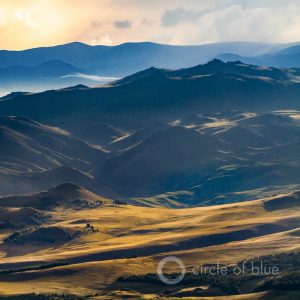The Stream, December 15: U.S. Clean Water Rule Social Media Campaigns Against the Law, Report Says
The Global Rundown |
Social media campaigns used by the U.S. Environmental Protection Agency to garner support for its Clean Water Rule were illegal, according to a government report. Typhoon Melor caused flooding, evacuations, and power outages in the Philippines. Scarce groundwater resources sparked conflicts between communities and agriculture companies in Peru. Toxic algae blooms along North America’s Pacific Coast can cause brain damage in sea lions, scientists found. A U.S. congressman proposed a bill that would eliminate part of the federal Clean Water Act.
“E.P.A. appealed to the public to contact Congress in opposition to pending legislation in violation of the grass-roots lobbying prohibition.”–A report released by the U.S. Government Accountability Office, which found that social media campaigns by the U.S. Environmental Protection Agency in defense of its Clean Water Rule amounted to illegal lobbying. (The New York Times)
By The Numbers |
800,000 people Number evacuated in the central Philippines in preparation for Typhoon Melor, which caused flooding and widespread power outages when it made landfall Tuesday. Reuters
Science, Studies, And Reports |
Blooms of toxin-producing algae along North America’s Pacific coast can cause brain damage in sea lions, according to a study published in the journal Science. The algae blooms are becoming larger and more frequent, possibly due to warmer ocean temperatures and runoff polluted with fertilizers. Reuters
On The Radar |
Conflicts over groundwater are springing up between local farming communities and agribusiness companies in Peru. Lack of monitoring and regulation of groundwater wells in the region also threatens aquifers. The Desert Sun
A bill proposed in the U.S. House of Representatives would eliminate a section from the federal Clean Water Act that is being used to block the development of the Pebble Mine in Bristol Bay, Alaska. The proposed gold mine has been opposed on grounds that it would destroy wild salmon fisheries in the Bristol Bay watershed. NRDC Switchboard
A news correspondent for Circle of Blue based out of Hawaii. She writes The Stream, Circle of Blue’s daily digest of international water news trends. Her interests include food security, ecology and the Great Lakes.
Contact Codi Kozacek







Leave a Reply
Want to join the discussion?Feel free to contribute!